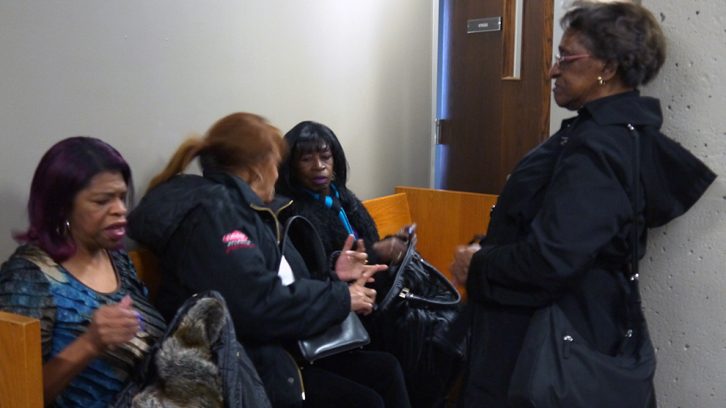Africville
Africville class-action lawsuit certification hearing goes to court
Plaintiffs want to push the case forward as a class-action lawsuit

caption
Nelson Carvery (left) and other former Africville residents and descendants.The Nova Scotia Supreme Court is being asked to certify a class-action lawsuit against the former City of Halifax by former Africville residents and descendants.
Nearly 40 former residents and descendants showed up in court on Wednesday to hear the proceedings.

caption
People going into the courtroom during the proceedings on Wednesday.The lawsuit process began in 1996, before the Halifax Regional Municipality was formed. Now, the plaintiffs want to bring the case forward as a class action. That way others can join the case without having to make individual claims.
Lawyers on both sides stated their opinions about the certification motion in court.

caption
Former Africville residents and descendants are talking.Robert Pineo is a lawyer for the lead plaintiff, Nelson Carvery.
“Essentially, residents of Africville who were removed by the City of Halifax had a property interest in the communal lands,” Pineo told reporters.
Pineo emphasized that before Africville was destroyed, people could fish, farm or garden on their communal lands, but couldn’t do that once they were relocated.
Karen MacDonald, a lawyer for the municipality, argued that Africville land couldn’t be considered communal land because it was not the possession of the community.
“The definition of communal land isn’t clear in this case,” she said outside court. “So we are not sure what we are dealing with.”
As a result, MacDonald argued the case shouldn’t be certified.
Africville was demolished four decades ago. In 2010, the HRM offered a settlement, which included an apology, land along the Bedford Basin where the former community stood and $3 million to rebuild a church there. It didn’t include any personal compensation.
“I don’t call the settlement a settlement, I call it a rip-off,” said Nelson Carvery in an interview.
Carvery said this fight is about recognition, as well as economic compensation.
Justice Patrick Duncan reserved his decision for two weeks to give both lawyers time to provide additional documentation.

